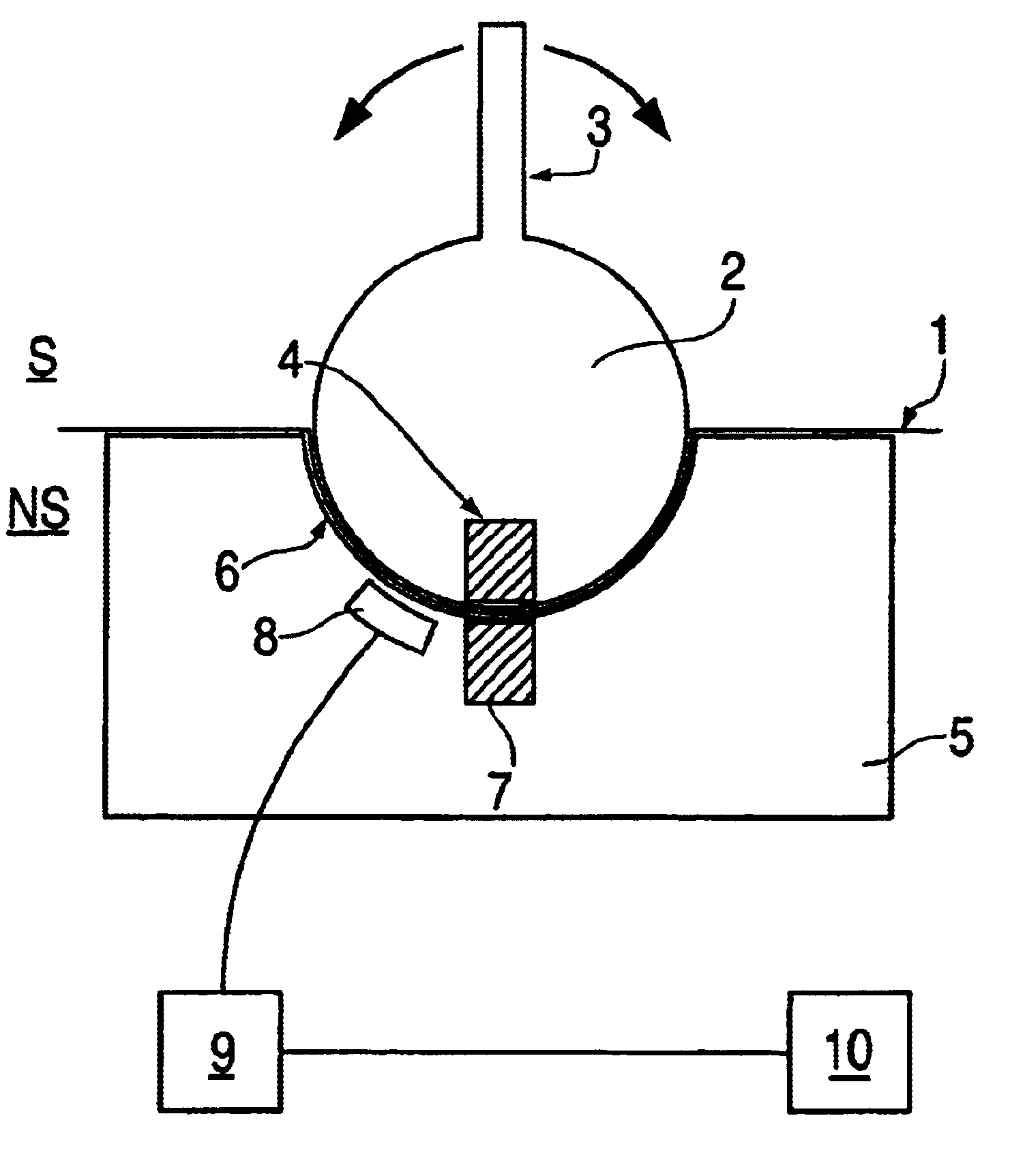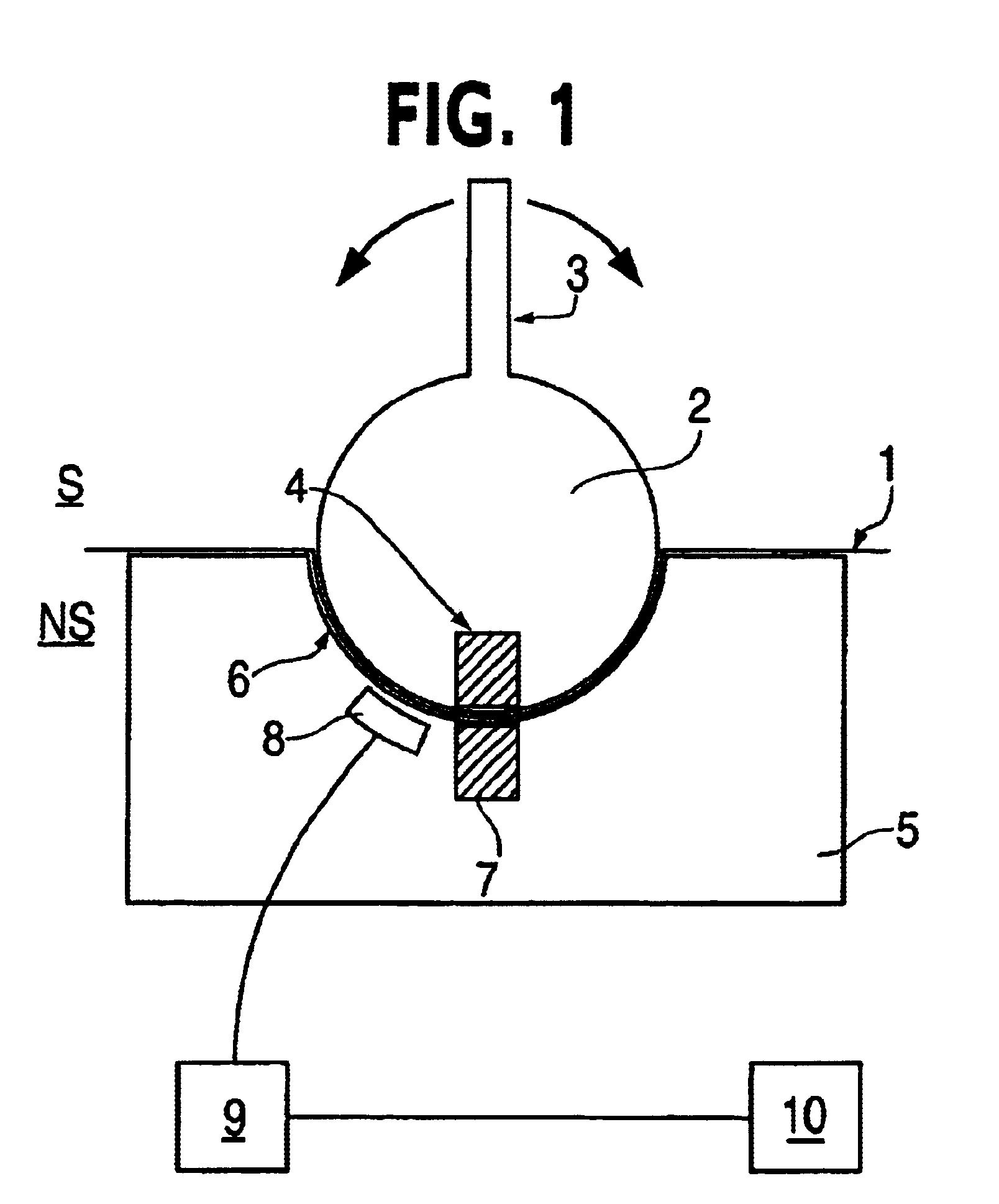Device for controlling an electric appliance used in the sterile area during medical operations
a technology of electric appliances and electric instruments, applied in mechanical control devices, manual control with multiple controlled members, single controlling member, etc., can solve the problems of inability to perform manual direct operation or control of electric instruments located in non-sterile areas, switch units for pedal operation present, and surgeons' operability becomes less and less easy to survey. , to achieve the effect of inserting operation
- Summary
- Abstract
- Description
- Claims
- Application Information
AI Technical Summary
Benefits of technology
Problems solved by technology
Method used
Image
Examples
Embodiment Construction
FIG. 1 illustrates a schematic cross-sectional view taken through a controller device. The sheet-like covering means 1 separates the sterile area S from the non-sterile area NS. In the sterile region S, which the surgeon can reach manually without any problem during the performance of a surgical operation, an operating element 2 is provided that has a circular cross-section. Based on principle, operating elements having a cylindrical or spherical configuration are suitable. For a simple operation of the operating element 2, the operating element is provided with an operating lever 3 which the surgeon can easily grasp and pivot in the direction indicated by the illustrated arrow. A permanent magnet 4 is inserted into the operating element on the underside thereof.
A basic body 5 is provided in the non-sterile area NS, that is separated by the sheet-like covering means and is provided with a recess 6 adapted as counter-contour to the circular geometry of the operating element 2. In the...
PUM
 Login to View More
Login to View More Abstract
Description
Claims
Application Information
 Login to View More
Login to View More - R&D
- Intellectual Property
- Life Sciences
- Materials
- Tech Scout
- Unparalleled Data Quality
- Higher Quality Content
- 60% Fewer Hallucinations
Browse by: Latest US Patents, China's latest patents, Technical Efficacy Thesaurus, Application Domain, Technology Topic, Popular Technical Reports.
© 2025 PatSnap. All rights reserved.Legal|Privacy policy|Modern Slavery Act Transparency Statement|Sitemap|About US| Contact US: help@patsnap.com


